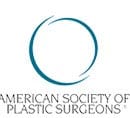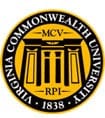If you are considering cosmetic surgery and you have scheduled the consultation with your cosmetic surgeon, then you’re wondering what cosmetic surgery questions to ask your potential surgeon. To help, we’ve compiled a list of the 10 most frequently asked questions about cosmetic surgery. At Richmond Surgical Arts, our goal is to improve patients’ appearance and self-esteem through the art and science of cosmetic surgery. Often, patients come to us asking questions that can help them decide if cosmetic surgery is a good fit for them.
Here are our top 10 most commonly asked cosmetic surgery questions:
Q: Am I a good candidate for cosmetic surgery?
A: In general, nonsmokers who are in good overall health and are currently at a healthy body weight are good candidates for cosmetic surgery. Those who suffer from serious health problems such as diabetes, high blood pressure, a bleeding disorder, heart disease or depression should not consider cosmetic surgery.
It’s also very important for prospective patients to have realistic expectations for their surgery results. Honesty about your medical history, plastic surgery goals and any concerns you have is crucial so we can make an informed and realistic assessment about what procedures may be best for you.
Q: What is the best age to have plastic surgery?
A: There’s no “right age” for plastic surgery. Treatments such as breast augmentation, liposuction, nose jobs and dermabrasion tend to be more common for younger patients, while older patients may be more likely to seek procedures such as an eyelid lift, brow lift, facelift or neck lift.
We schedule pre-surgical consultations with every patient to discuss your desired results and evaluate your goals on a case-by-case basis. During the consultation, we will also discuss individual factors, such as your unique body type, bone structure, size, age and overall health.
Q: Is plastic surgery safe?
A: As with all surgical procedures, some level of risk is possible. Our medical staff is highly trained and has many hours of surgical experience. We will do everything possible to minimize complications during your surgery.
Additionally, it’s essential to follow all your pre- and post-operative instructions exactly, and thoroughly discuss any and all medical conditions with us before your procedure. This is the best way to ensure a smooth surgery and recovery process.
Q: What does it mean for a surgeon to be board-certified?
A: Earning board certification is one of many ways a surgeon can prove his or her skills and knowledge. Each certifying board has different requirements and measures a physician’s education and experience in their chosen fields. Dr. Lynam holds double board certifications as a cosmetic and maxillofacial surgeon.
Legally, any medical doctor is permitted to do any surgery. For example, there is no law that says an ear, nose and throat doctor can’t perform a facelift. Board certification provides assurance that a doctor has undergone formal training in the fundamentals of cosmetic surgery. A plastic surgeon cannot earn board certification without completing at least four years of residency training in cosmetic surgery procedures. The American Board of Cosmetic Surgery also requires surgeons to complete continuing medical education and take a written test every 10 years.
Q: Does it really matter where I have my surgical procedure?
A: Your safety during surgery depends on the quality of the operating facility. Just like surgeons, operating rooms can also earn accreditation. Accredited operating rooms include key life support systems just in case something goes wrong. We perform most of our cosmetic procedures at Stony Point Surgery Center, a fully-accredited outpatient facility.
Q: How do I prepare for surgery?
A: Preparing both mentally and physically for cosmetic surgery procedures such as a breast augmentation, liposuction, tummy tuck, facelift or brow lift, though fairly straightforward, is necessary for a successful surgical outcome.
The process begins with a consultation, during which our staff will have an in-person meeting with you to thoroughly discuss every aspect of the procedure, the recovery time and your ideal results. During this time, you should ask to see before-and-after photos of patients with similar facial and/or body features to yours who have had the same procedure you’re planning to have, so you have a clearer idea of what results you can expect.
We will also review your health history and give you additional instructions for pre- and post-surgery. Please come prepared with a list of cosmetic surgery questions – when you’re planning to make such a big change to your appearance, there’s no such thing as being too inquiring.
Q: Will my medical insurance cover my cosmetic procedure?
A: In cases where people need surgery for reconstructive purposes – for example, if they’ve been injured in an accident – insurance may cover part or all of the procedure. However, purely cosmetic surgeries are elective procedures, so insurance is usually not involved. Our friendly staff can help you determine if, and to what extent, you may be eligible for insurance coverage.
Q: Is plastic surgery considered an outpatient procedure, or should I prepare for a hospital stay?
A: Most plastic surgery procedures are performed on an outpatient basis, with some exceptions. Cases where we may suggest a patient stay overnight include the following:
- If you live alone – after surgery, you may need someone to help you with basic daily tasks.
- If you have elected to combine multiple procedures and it’s necessary for us to monitor your overall condition and pain.
- On the rare occasion complications arise during the surgery
Q: What should I do to achieve the best results from my surgery?
A: There are several steps you can take to get the best possible surgical results, including the following:
- Stop taking any over-the-counter supplements, such as vitamins, minerals and herbal products, seven days prior to surgery.
- If you smoke, quit smoking at least six weeks before your surgery to avoid healing problems and serious medical complications during your recovery.
- Tell us if you are taking aspirin or drugs with anticoagulation properties, as they can cause unnecessary bleeding during surgery. We may ask you to discontinue them before surgery to minimize the risk of unnecessary bleeding.
- You want to be in the best of health before coming in for surgery. For this reason, if you come down with a cold or fever, or experience an infection or injury, contact our office immediately to reschedule your procedure and minimize the risk of surgical complications.
Q: I’m not ready to commit to surgery. Are there less invasive options to improve my appearance?
A: Yes! There are several injectable dermal fillers on the market that can plump lips and cheeks, smooth out wrinkles and fine lines and restore a more youthful overall appearance. While the results from these products aren’t permanent, they are long-lasting, and unlike surgery, they require no recovery time. The injections are done in the comfort of our office and usually take less than an hour to perform.














